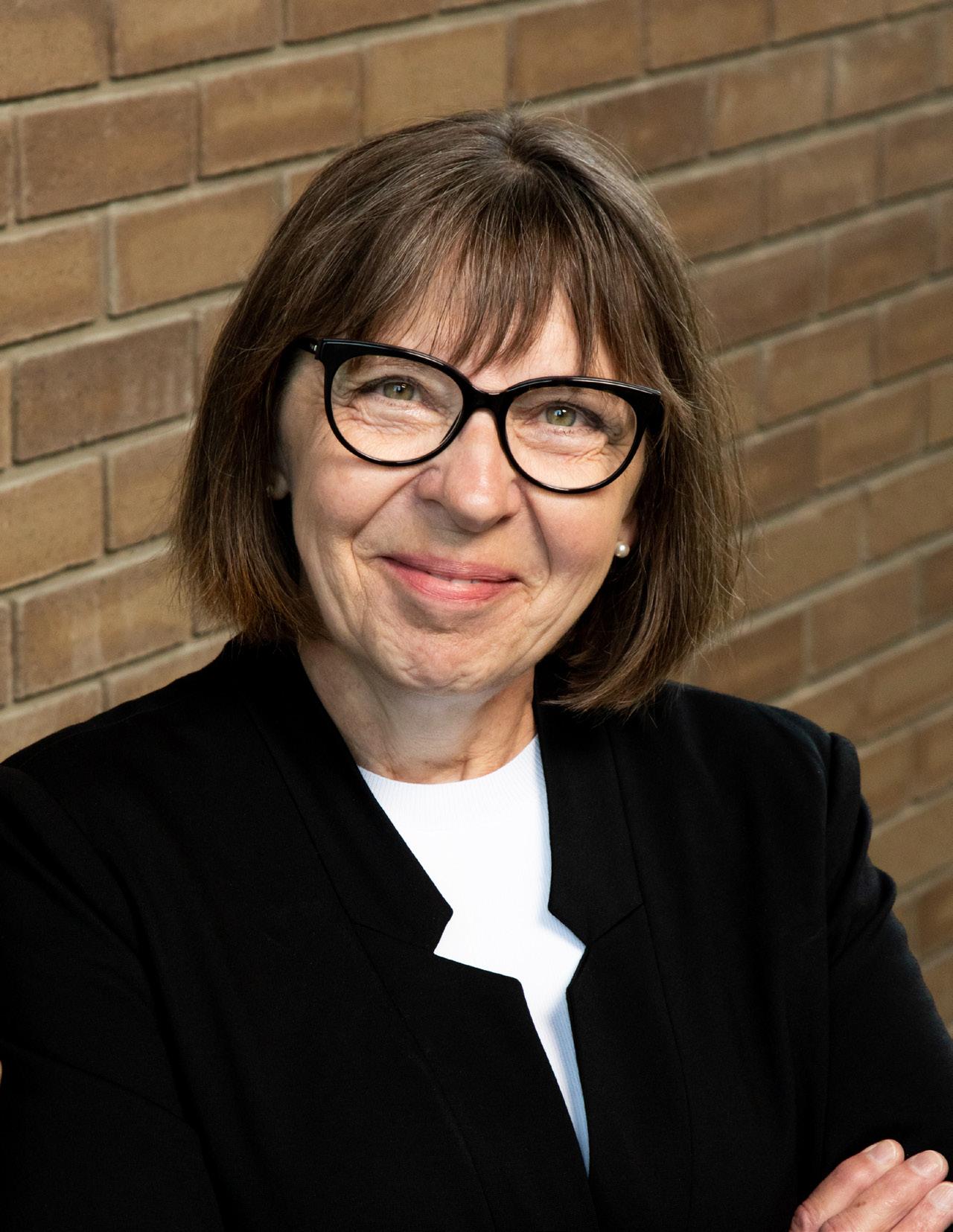
5 minute read
Leading in the time of COVID
By Girard Hengen
As a member of the first medical school class in Canada with as many women as there were men, Dr. Barb Konstantynowicz felt a sense of duty to be a leader in the profession.
She had no way of knowing at the time that her turn to lead would come amid a global pandemic unprecedented in both scale and scope.
Dr. Konstantynowicz assumed the presidency of the Saskatchewan Medical Association (SMA) on June 18, 2020, during the first virtual Representative Assembly held by the SMA. Almost 40 years earlier, she was a graduate of the University of Saskatchewan’s College of Medicine, Class of 1981.
“We were told it was the first class of 50 per cent women in Canada,” she said, “a group of physicians who had an opportunity to be leaders.”
Dr. Konstantynowicz became SMA president as the medical profession, and Saskatchewan as a whole, began to emerge from a strict lockdown imposed after the first case of COVID-19 was detected in mid-March. Uncertainty still drives the health-care agenda as it relates to COVID-19, not knowing what’s going to happen next – or when life can return to a new normal.
“We can easily become complacent and think we are OK because there aren’t many cases in our neighbourhoods, but this is a virus that we have to take seriously and keep our resolve up to take care of each other and our patients,” Dr. Konstantynowicz said. She views the pandemic from the perspective of a family doctor who cares deeply about her patients.
“As a family physician you treat from cradle to grave. Every stage of life, every health condition, for any gender, any background, or socioeconomic status, family physicians have always been there. We can’t fail our patients now.”
With health-care resources and energy being poured into responses to COVID-19, she hopes other patients aren’t forgotten. Dr. Konstantynowicz still remembers starting out her medical career, with the emergence of HIV-AIDS being the biggest health-care challenge of the time. Despite innovations in therapies, HIV rates remain relatively high in Saskatchewan.
“That concerns me as a care provider,” she said. “I know in many ways, the COVID-19 pandemic is going to have an impact in many areas of health-care, for example – HIV therapy, mental health, chronic diseases, elders and long-term care – I can keep identifying areas I do not want us to forget about. Despite the pandemic, we have to be vigilant in these areas.

“I do think many people are having pandemic fatigue,” she continued. “They so desperately want life to go back to normal. I want life to go back to the normal I have known for the majority of my career. We must adapt to a new normal and it means that we will create new ways to provide care. When we are putting on our PPE and seeing patients or having a virtual appointment, we need to remember to ask how they are doing – with mood, coping, resiliency and isolation.”
Making a day in the life of a doctor better
Born and raised in Regina, Dr. Konstantynowicz received a BSc from the University of Regina before attending the University of Saskatchewan. She completed a family medicine residency in Regina and started her career as an emergency room physician and ACLS instructor.
She did locum work in rural Saskatchewan, including Lampman, Estevan and Melfort. She also worked in Edmonton at the Royal Alexandra Hospital, in academic family medicine. She taught courses in family medicine following a year of study at Western University under Dr. Ian McWinney, Canada’s first chair in family medicine.
Her first foray into the world of physician leadership came when she was asked by a Regina physician to serve on a committee. The group succeeded in improving family physicians’ access to diagnostic (MRI/CT) imaging.
“When I started on that road I realized we needed to make a day in the life of a physician better. Many decisions are made at a system level – but this does not always help a physician be able to provide optimal patient care.”
In the 1980s and 1990s medical knowledge was exploding with new therapies, procedures, innovative technologies and better equipment. “There is a rapid pace of change, high workloads and a culture that creates the expectation that physicians will do it all without system supports. The system needs to support all physicians, with the physician’s input.
“I wanted the voice of the doctor to be at the table. Many of my colleagues were too busy to volunteer and it was hard to commit time for meetings – which were usually held during office hours – or even be aware we should be at some highlevel discussions.”
Dr. Konstantynowicz became a SMA RA delegate in 2014, and joined the SMA Board in 2015. She has served on several committees, including Finance, Primary Health Care, Intersectional Council, EMR and the section of family medicine. She was elected secretary-treasurer of the SMA for 2018-19, and vice-president for 2019-20. Dr. Konstantynowicz succeeds Dr. Allan Woo as president.
She cites the need to tackle systemic racism as a high priority for her term. Physicians can act as influencers, identifying problems and finding solutions within the profession and in society as a whole.
“It is such an important topic and it is one that will need time and skill, the wisdom of our membership and the board,” she said.
As president of the SMA, Dr. Konstantynowicz has arrived not just at the table, but at the head of the table. That thought among the class of 1981 – that the graduating women had a chance to be leaders in the field – has been fulfilled.
“We felt it was an opportunity for us to do something,” she recalls. “Women had gone before us to pave the way for us to get into medicine. What was I going to do with that?”
Dr. Konstantynowicz is married to Jeff, a lawyer in Regina. They have two children attending McMaster University in Hamilton. Alexander is pursuing his master’s degree in biomedical engineering, and Jessica just completed her first year of medical school. ◆










